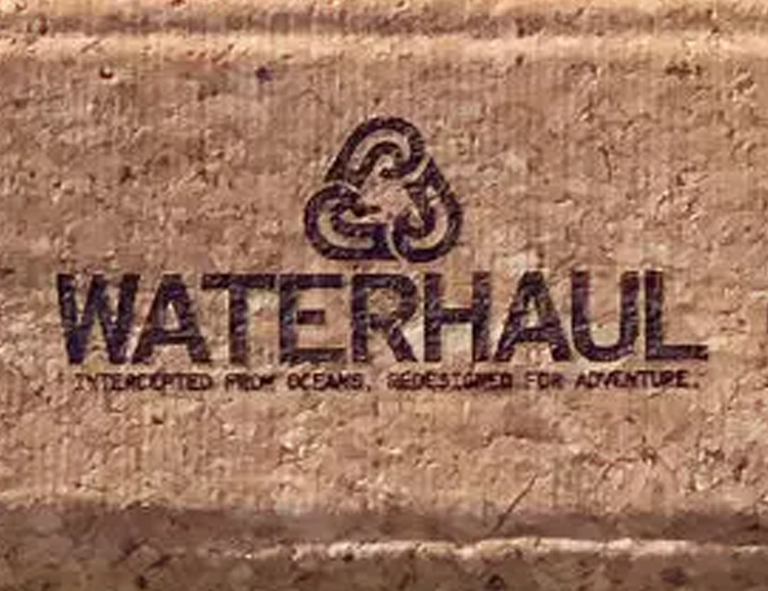Crantock Sunglasses
Overview
Our Crantock model is made from 100% recycled polypropylene trawl nets nets, and paired with polarised mineral-glass lenses, offering complete sustainability, optical performance and ultimate UVA/UVB 400 protection. The mid-sized frame suits a broad range of faces, both male and female.
Recycled frames
Our Italian made Crantock frames contain 0% virgin plastics, 100% recycled fishing nets that were collected from European waters through end-of-life amnesty schemes and beach and dive based ghost net recoveries. The Crantock frame is made from green polypropylene trawl nets - the most abundant form of net we find on UK beaches. The frames feature five barrel hinges for maximum durability. Our frames are covered by our 'Recycle and Replace' lifetime guarantee - damaged frames components can go back into the plastic recycling loop to create new pairs. Frames come in a dark grey matte, and being 100% recycled, each pair has unique, subtle flecked patterns which allude to their origin. Our laser logo's reveal the green pigment from the original fishing nets.
Polarised Mineral Glass
We’ve paired our Crantock frames with extremely high quality, polarised, grey-green tint glass lenses. Whilst most of Waterhaul's customers come for our recycled frames, the glass lenses are what sets the experience of wearing Waterhaul sunglasses truly apart and keeps customers for life. We stand by glass for three key reasons;
- Optical glass is the clearest lens-medium through which we can observe the world - no other lens material matches it's optical clarity. The optical performance of a lens can be measured by it's 'Abbe Value' - the degree to which light is dispersed when entering a lens. Mineral glass has an Abbe Value of 59, the highest of any optical lens material. Standard plastic lenses, like polycarbonate, have an value of 32. This clarity ensures the clearest possible perception of details, colours and contrasts.
- Exceptional scratch-resistance. The 'Mohs hardness scale' is a measure of the resistance of a material to scratching, expressed on a 1 - 10 scale (10 being diamond). Scratches can only occur from contact with materials with a higher Mohs value. Mineral glass has a Mohs value of 6.0. In comparison, conventional plastic lens materials such as CR39 and polycarbonate have Mohs values ranging from 3.0 - 3.2.
- Sustainability. Glass is a natural material that can be infinitely recycled in any glass-recycling collection.
Waterhaul's Italian made glass lenses offer full spectrum UVA and UVB protection. The lenses are fully polarised, eliminating glare from reflective surfaces of water, snow and wet roads.
Packaging
Our product and packaging supply chain is free from single-use plastic - we've audited the full length of our supply chain and you'll receive your new pair in hassle and harm free recycled wood-pulp packaging.
Each pair includes a free magnetic fold-flat hard case made from sustainable cork.
Intercepted from oceans, Redesigned for adventure.
About the brand



Waterhaul is a social enterprise based in Newquay, Cornwall.
They utilise the strongest form of plastic in our oceans to produce exceptionally sustainable, recycled eyewear. Eyewear that meets the technical demands of adventure, ocean-exposure and UV protection, but also act as ‘symbols of change’ for our oceans. Waterhaul sunglasses frames are guaranteed to last you a lifetime, because they are made from nets that would last decades in the ocean.
Waterhaul' sunglasses are made in Northern Italy by experienced craftspeople. They work closely with a family run business to implement circular principles and sustainable practice at all stages of the supply chain - including recycling all of their waste / reject material and conducting a single-use plastics audit to eliminate all usage. Their lenses, which are made of glass instead of non-recyclable plastics, are also produced in an Italian facility.
The family ensures the facility is meeting the EU's high environmental and ethical workplace standards. The rest of the assembly takes place in Cornwall with their small team by the sea at their Newquay HQ. The prescription lenses are fulfilled just four miles away by a family run manufacturing opticians, Quincey Eyewear.
Purchasing Waterhaul products enable them to remove and recycled more plastic from the ocean environment and prevent plastics from ending up in this environment. Recycling plastics is very carbon-efficient, with the recycled polymer having around 15% of the CO2 footprint of virgin polymers. However, despite using best-practice at all stages of the production process, there are inevitable costs associated with process, with the largest being transportation. To address this, we use carbon offset land-based transport methods for every movement of our material to final product.












